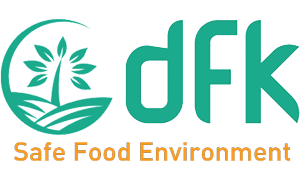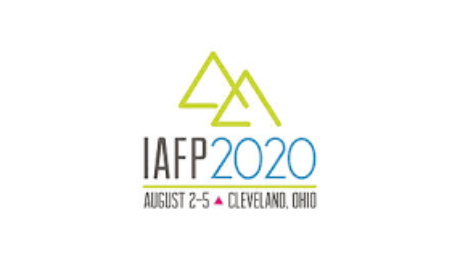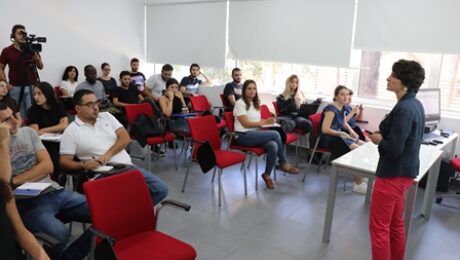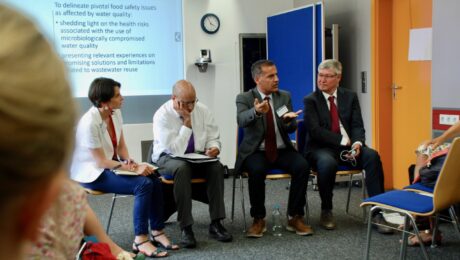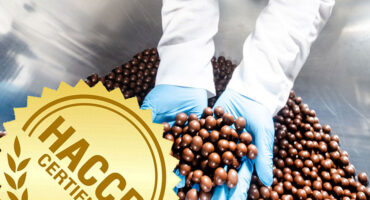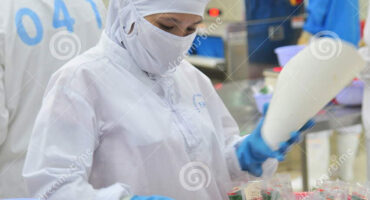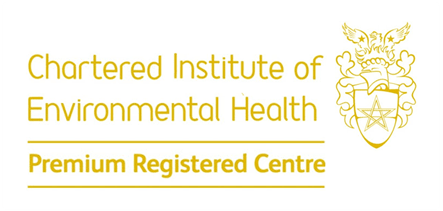Food labels review for entry to the US, EU and UK markets.
IAFP 2022 European Symposium – Munich
Monday, 27 June 2022
by Dr Faour Klingbeil
Dr Faour-Kingbeil was invited to the International Association of Food Protection Annual Meeting, Munich, German, May 4-6, 2022. She joined other experts in the symposium session titled “Safety and Quality of Water Used and Reused in Fresh Produce Supply Chains” to offer a presentation on “Bringing Fit-for-Purpose Applications into Fresh Produce Operations and Managing Control”. Water scarcity is a global issue resulting from diminishing water availability with the increasing water demand, water overuse, pollution, and changes in water availability due to climate change. Industries from all sectors have critical roles in alleviating water scarcity. Particularly the food and agriculture sectors are under the pressure of being the largest consumers of water. Further challenges are read with the rising demands for healthy fresh food and the rapid growth of the ready-to-eat and fresh-cut vegetables markets in the developed economies; Hence, while increasing food production, it is imperative to adopt strategies for efficient water use in the fresh produce industry to conserve water resources and reduce costs and environmental impact of the high volume of generated wastewater. Water reuse is one of the measures deemed appropriate to mitigate high water consumption. It is advocated as a valuable resource by the United Nations World Water Development Report and the circular economy perspective.Ultimately, water quality should fit the purpose it is used for, and recycling or reuse applications will have to consider water suitability which depends on its source. Thus, cross-contamination and recontamination risks are likely to occur without validated and verified control steps, predisposing final products to hazards. This presentation will offer an overview of water reuse in the fresh produce industry, associated risks, and currently applied solutions to prevent cross-contamination. Technological limitations and research needs are also considered. https://www.foodprotection.org/upl/downloads/meeting/program-overview/627e695c45ce4423a221b.pdf
IAFP 2021 Symposium :Latest Developments in Food Safety Standards for Water Reuse in Food Production and Processing
Sunday, 29 August 2021
by Dr Faour Klingbeil
Dr Faour-Klingbeil joined other colleagues in organizing the symposium: “Latest Developments in Food Safety Standards for Water Reuse in Food Production and Processing during the International Association of Food Protection Annual Meeting, Phoenix, Arizona, July 18-21, 2021. This symposium featured key stakeholder views on the importance of developing standards for context-specific water reuse for food production and processing. During this event, she presented “Regulating Water Re-Use in Food Processing to Ensure Acceptable Risk to Consumers”: The pressure is on! Water scarcity is a globally rising problem mainly caused by overuse of water, population growth, economic development, urbanization, and changing food consumption patterns. The diminishing availability of water is expected to exacerbate global warming and climate change effects; hence, wastewater reuse is increasingly viewed as an alternative solution to meet the rising demands for water. However, current default water standards for food use are high, with potable water being the gold standard for food use. While the use of reused (for instance recycled) water is becoming more practiced, no international standards have been established, and there are potential food safety hazards (e.g., microbial pathogens and chemical contaminants) associated with used water sources that need to be adequately managed to avoid food safety risks at the consumer phase. The necessary scaling-up of water reuse may be possible given that significant volumes of used water are currently not utilized. However, these sources vary a lot in the possible presence of hazards and other quality parameters. For effective utility, used water from different sources of quality will need to be treated to a quality level that is acceptable and fit for the intended food use purpose, yet safe to consumers. To provide guidance on consumer food safety expectations of water reuse, regulatory or other authoritative standards are urgently required. After all, agriculture/food production, processing, and preparation all use a lot of water but also come with large volumes of used water! Codex Alimentarius, ISO, and country governments have started developing their own standards and establishing them as foundations for regulatory acceptance of fit-for-purpose water approaches by their member countries.
FAFS Lecture Series | An overview of the FSMA and its implications for food exporters
Wednesday, 16 December 2020
by Dr Faour Klingbeil
As part of the American University of Beirut FAFS (The Faculty of Agricultural and Food Sciences ) Lecture Series, Dr. Dima was invited to deliver an open lecture on “An overview of the Food and Drug Administration Food Safety Modernization Act (FSMA) and its implications for food exporters” that took place on the 10th of October 2019. About the lecture: Foodborne disease is a significant burden worldwide. In the United States, it is estimated that 48 million people get sick, 128 000 are hospitalized, and 3000 die annually from contaminated food or beverages. Prompted by the increasing prevalence of imports, high-profile food outbreaks, food fraud, and emerging hazards, the U.S. Food Safety Modernization Act was signed into law in 2011, the first historical reform to the legislative landscape of the food and beverage industry in over 70 years. FSMA has made fundamental changes to U.S. food laws. It shifted the focus of food safety from reactive to preventive approach and gave the U.S. Food and Drug Administration explicit authority and broader prevention mandate to protect consumers’ health. Instead of relying only on port-of-entry inspection, FSMA emphasizes key regulations that span across the food supply chain. Among other modifications, it imposes new responsibilities on food importers to verify that their foreign suppliers of food for human and animal consumption meet applicable FDA safety standards to ensure the safety of food imported into the U.S.
IAFP 2020 Symposium :”A Highwire Act: Balancing Sustainable Agricultural Irrigation Approaches with Food Safety Priorities in the Face of Water Shortages”
Monday, 26 October 2020
by Dr Faour Klingbeil
Each year, the International Association for Food Protection hosts an Annual Meeting, but this time IAFP 2020 was held virtually on 26-28 October 2020. DFK joined colleagues in organizing the symposium :”A Highwire Act: Balancing Sustainable Agricultural Irrigation Approaches with Food Safety Priorities in the Face of Water Shortages”. This symposium brings together speakers who are currently investigating wastewater reuse and also researchers collecting data on pathogens in irrigation water and compliance with emerging standards. Characterization of these risks can lead to better management and mitigation of contaminant presence in irrigation water intended for produce, not only for the U.S., but for countries with arid regions. DFK offered a recorded presentation on “The growing trend of wastewater treatment in the Arab Region: An unexploited opportunity for agricultural use”.
Open Space Workshop 10th Water Research Horizon Conference 2019
Friday, 14 June 2019
by Dr Faour Klingbeil
Food and water are two components that are strongly linked throughout the different stages of the farm-to-fork food supply chain. With the growing problem of water scarcity that is compounded by climate change, conserving water resources and seeking alternative options have become the goals of the food production and processing industries, yet the strategies and approaches vary greatly among countries. To address these challenges and devise effective wastewater treatment solutions without compromising the safety of food, Dr. Dima Faour-Klingbeil organized the Open Space Workshop “Food Safety meets Water Quality” during the 10th Water Research Horizon Conference 2019 (18th-19th June 2019) that was jointly organised by the Water Science Alliance and the Federal Institute for Geosciences and Natural Resources. The workshop brought food and water scientists and experts for an interdisciplinary discussion and to delineate pivotal food safety issues as affected by water quality and wastewater use and reuse. See the outcomes report here.
